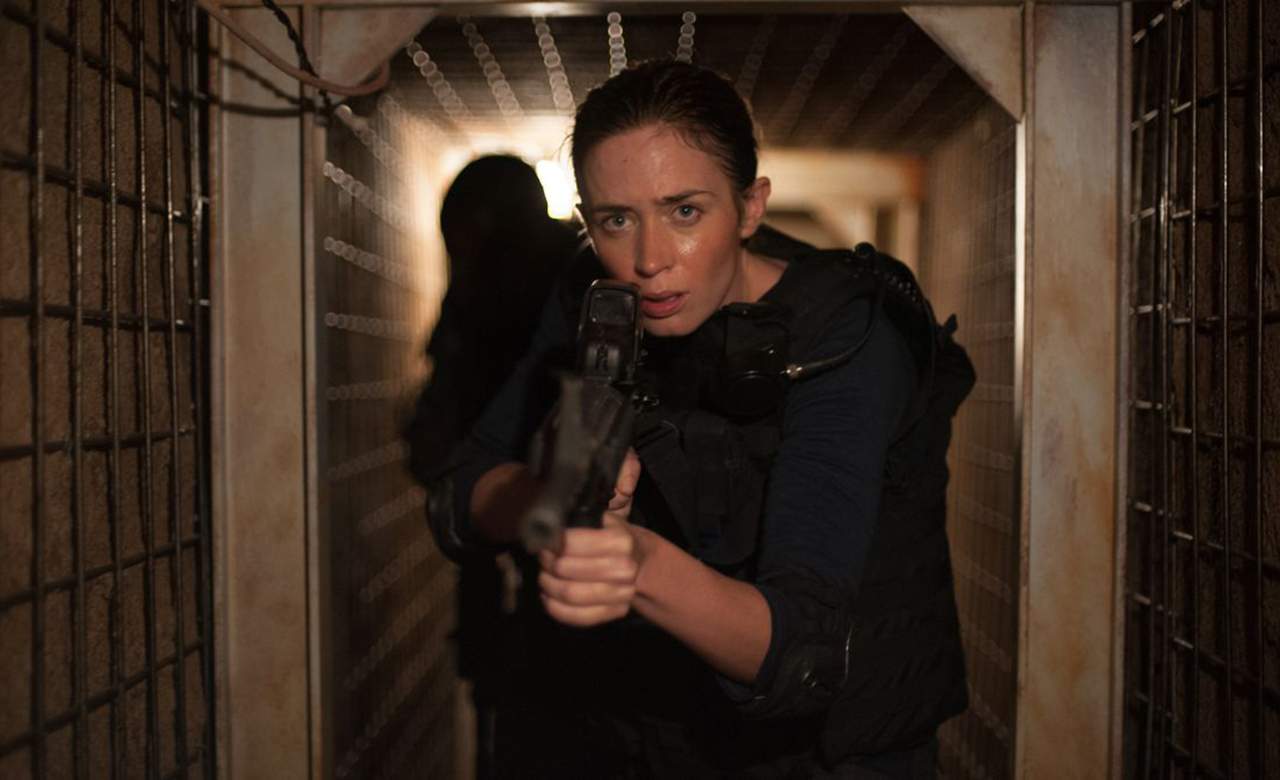Sicario
Dive into the chasm between perception and reality in this drug crime thriller.
Overview
Sicario begins with an ordinary-looking slice of Arizona's desert-bordered suburbia, roving over rows of homes as far as the eye can see. As the kidnap extraction operation that will soon storm the doors of one particular house — and find much, much more than they bargained for — swiftly reveals, there’s little that’s normal behind the average facade. In a powerful start to his latest feature after Incendies, Prisoners and Enemy, director Denis Villeneuve ensures the chasm between perception and reality is apparent; indeed, it will echo throughout the feature.
It's a fitting kernel of thought to plant in the minds of viewers who will witness 121 minutes of procedural tension seemingly concerned with the titular term — cartel slang for hitman in Mexico — in the context of the drug war, but actually delving into the haziness of trying to do the right thing by any means. It certainly bears remembering that Villeneuve doesn’t make films that could be considered easy viewing. As written by actor-turned-screenwriter Taylor Sheridan (Sons of Anarchy), Sicario jumps into the United States' furtive attempts to arrest the impact of the narcotics trade, then creeps through shades of grey, shimmers of complex uncertainty and slivers of necessary compromise.
Accordingly, three figures earn the grim film's focus: FBI agent Kate Macer (Emily Blunt), plus government contractors Matt (Josh Brolin) and Alejandro (Benicio Del Toro). After leading the charge in the opening events, the former is asked to volunteer to work with the latter two men to bring a drug lord to justice. Their idea of how to do so, abandoning the rules in favour of operating in the shadows, differs to the by-the-book approach Macer prefers.
Comparisons to Zero Dark Thirty prove apt and earned for an effort that treats its bristling violence and brutal set pieces as routine, strands its protagonist with reaching for an end result that can't be achieved by above-board means, and navigates the moral quandaries and harsh realities that spring. The striking, sunlit visuals, lensed by 12-time Oscar nominated cinematographer Roger Deakins (Skyfall) and seething with gritty texture, add to the overwhelming feeling of inevitability and despair Macer is saddled with, with as much said by the framing — often preferring to peer on at conversations from a distance, or capture action via aerial shots — as by the dialogue.
Such rich imagery is matched not only by an unrelenting, rattling, bass-heavy score, but also by a trio of performances that simmer on screen. Blunt, continuing a spate of great choices of late that has included Looper and Edge of Tomorrow, finds the right mix of resilience and vulnerability as the woman at the centre of a puzzle she's being precluded from piecing together. Del Toro wears the feature's weariness, vagueness and murkiness in his gaze, while Brolin does the same thing with his sly smile and casual attitude — and becomes the film's standout player in the process.
Indeed, Brolin acts as a weathervane for Sicario's end result, offering layers of quiet power that build with every exchange and altercation into an ever-troubling picture of ambiguity and unease. You're never quite comfortable with his character, nor should you be with the feature he's in, as compelling, confronting, stunning and downright exceptional as it is.





